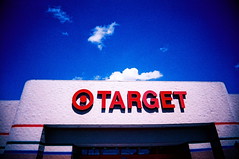Showdown Over ‘Showrooming’ (Wall Street Journal)

Store-based retailers are struggling to deal with the modern shopper. More and more retailers are seeing consumers enter their stores, spend time looking around and then leave without making a purchase. If retailers watch closely, they also will notice that consumers are not only looking and touching the merchandise, they are using their mobile phones to compare prices against other retail outlets. Retailers are finding this to be a real problem, especially when consumers are comparing products found in a store-based retailer to products offered by online retailers.
Of course, many store-based retailers have a valid reason to be worried. Here they are spending large amounts on inventory, store personnel, equipment and real estate, only to see some consumers use them only as a showroom for products since they are more likely to buy online. This is particularly the case for more expensive products and for products consumers do not need immediately.
The trend of pricing checking using mobile devices is something most retailers saw coming. As we noted back in 2010, “As technology continues to advance us to having instant access to almost anything, retailers are facing a host of issues with repercussions that could change how retailing is done.“
Well, those changes appear to be playing out. Target is one of the world’s largest retailers, and they are frustrated with how consumers’ shopping behavior is changing. According to this story, Target is going on the offense by enlisting the support of its suppliers to help fight off the so-called “showrooming” consumer by encouraging suppliers to offer unique products that are found only at Target and, thus, cannot be easily compared to products available through other retailers. Additionally, the story discusses other ideas retailers are considering to combat the change in consumer shopping behavior.
Last week, in an urgent letter to vendors, the Minneapolis-based chain suggested that suppliers create special products that would set it apart from competitors and shield it from the price comparisons that have become so easy for shoppers to perform on their computers and smartphones.
What other strategies can store-based retailers implement that may keep customers from buying elsewhere?
Image by kevin dooley
